Top Vegetables With Minimal Watering Needs [Drought Tolerant Vegetables]
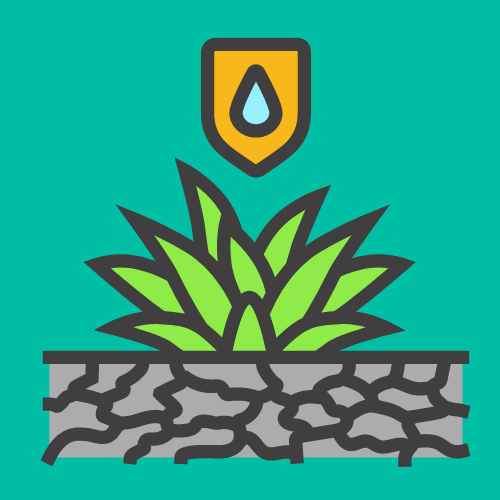
If you’re interested in growing vegetables that can thrive with minimal water, this guide is perfect for you.
Drought-tolerant vegetables are great for regions with water restrictions, dry climates, or gardeners who want to conserve water. These crops are well-adapted to withstand dry conditions, making them easy to grow and maintain.
In this guide, we will explore the top vegetables with minimal watering needs and explain why these hardy plants are an excellent choice for any water-conscious garden.
Get our Gardening Buddy and find veggies that fit your conditions best.
You Can Grow It!
Kale
Kale is a hardy leafy green that can thrive with minimal watering, especially once established. Its deep root system allows it to access moisture deeper in the soil, which helps it survive dry spells.
Kale also prefers cooler temperatures, and its resilience makes it ideal for gardens with less frequent watering. This vegetable is not only easy to grow but also nutrient-dense, providing an abundance of vitamins A, C, and K, as well as antioxidants and fiber.
Kale’s ability to grow with limited water makes it a popular choice for gardeners looking to minimize irrigation efforts.
Arugula
Arugula, also known as rocket, is a fast-growing leafy green that requires relatively little water to thrive.
Arugula can tolerate dry conditions once established, and its rapid growth means it matures before needing excessive irrigation.
It grows best in cooler weather, and its shallow roots mean it can be grown in small spaces with efficient watering methods, such as drip irrigation. Arugula’s ability to grow quickly and tolerate minimal watering makes it an excellent choice for water-conscious gardeners seeking fresh salad greens.
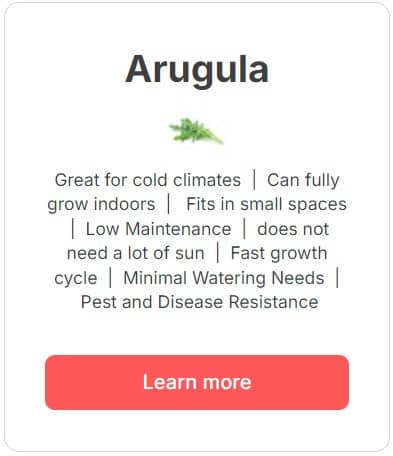
Peas
Peas are a great vegetable for gardens with minimal water. They are naturally adapted to cooler temperatures and moderate moisture levels, which means they don’t need constant watering to grow successfully.
Peas also have relatively shallow roots, and providing them with occasional deep watering is enough to keep them healthy. By using mulching techniques around pea plants, you can help retain moisture in the soil and reduce the need for frequent irrigation.
Peas are also excellent for vertical gardening, allowing you to maximize your garden space while conserving water.
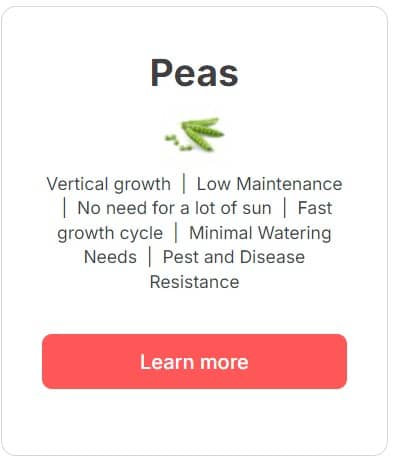
Tomato
Tomatoes are a versatile crop that can adapt well to drier conditions, especially indeterminate varieties with deep root systems.
Once established, tomato plants are able to tolerate dry spells by accessing water deep in the soil. Proper mulching can help tomatoes retain moisture, reducing the need for frequent watering.
It’s important to water tomatoes deeply but less often to encourage root growth, which makes them more resilient to drought conditions. With proper care, tomatoes can thrive with minimal watering, making them a staple for low-water gardens.

Peppers
Peppers, including bell peppers and chili peppers, are known for their ability to tolerate dry conditions once they are established.
Like tomatoes, peppers develop deep roots that allow them to access moisture below the surface, which helps them thrive even with minimal watering.
Peppers prefer well-drained soil, and overwatering can lead to root rot, so allowing the soil to dry out slightly between waterings is actually beneficial. This makes peppers an ideal choice for gardeners looking to grow vegetables with minimal watering needs.
Melons
Melons, such as cantaloupe and watermelon, are surprisingly drought-tolerant once they have established a strong root system.
These fruits require consistent watering during their initial growth stages, but as they mature, they can handle drier conditions. Their sprawling vines help shade the soil, reducing evaporation and conserving moisture.
Melons also benefit from deep watering rather than frequent shallow watering, which helps them grow flavorful, juicy fruit while using less water overall. Their ability to thrive with minimal watering makes melons a great addition to any water-conscious garden.
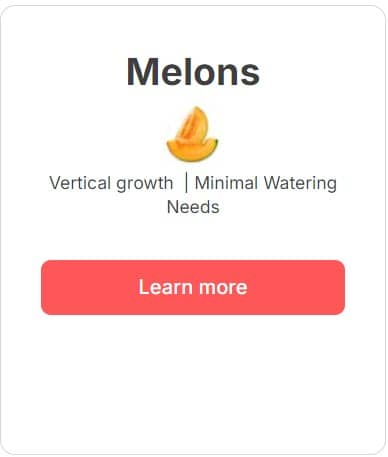
Courgettes (Zucchini)
Courgettes, or zucchinis, are known for their ability to grow rapidly and produce abundant yields even with minimal watering.
Once established, courgette plants can tolerate dry conditions thanks to their large leaves, which help shade the soil and reduce evaporation.
Courgettes require well-drained soil, and overwatering can lead to issues such as root rot. By watering deeply and infrequently, you can encourage the plants to develop strong roots that are better equipped to handle dry conditions, making courgettes an excellent choice for low-water gardening.
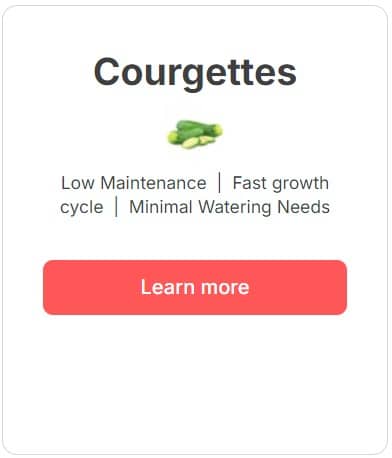
Eggplant
Eggplants are another vegetable that can thrive with minimal water once they are established.
Their deep root system allows them to access moisture from deeper in the soil, making them more tolerant of dry conditions. Eggplants do well with less frequent but deep watering, which encourages strong root development and helps the plants withstand drought.
Mulching around eggplant plants can also help retain moisture and reduce the need for irrigation. Eggplants are a great option for water-conscious gardeners who want to grow a versatile and delicious vegetable.
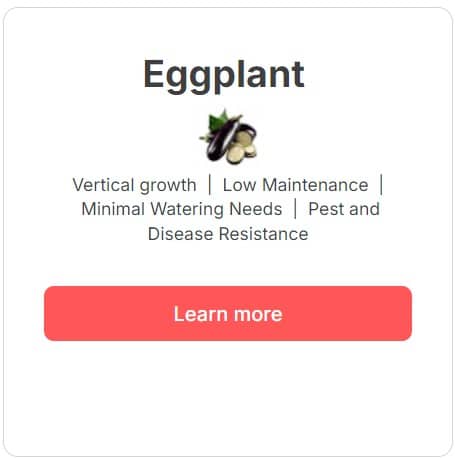
Corn
Corn is a resilient crop that can grow well in dry conditions, particularly once it has established itself. Corn plants develop deep roots, which allows them to access water below the surface, helping them withstand periods of drought.
While corn does need regular watering during the early stages of growth, it becomes more drought-tolerant as it matures. By using mulch to help retain soil moisture and watering deeply but infrequently, you can grow corn successfully with minimal irrigation, making it a viable option for low-water gardens.

Soil Preparation for Drought-Tolerant Vegetables
Preparing the soil is one of the most crucial steps in successfully growing drought-tolerant vegetables. Well-prepared soil helps retain moisture, providing plants with a consistent supply of water even in dry conditions.
Start by loosening the soil to improve aeration and drainage. Adding organic matter such as compost or well-rotted manure can significantly enhance the soil’s water-holding capacity.
For sandy soils, which tend to drain quickly, adding clay can help improve moisture retention. Mulching the soil surface with organic material can further reduce evaporation and maintain soil moisture, providing an optimal growing environment for drought-tolerant vegetables.

Mulching Techniques to Conserve Water
Mulching is a highly effective way to conserve moisture in your garden, especially when growing drought-tolerant vegetables.
A thick layer of mulch helps reduce evaporation, keeping the soil cool and moist for longer periods. Organic mulches, such as straw, wood chips, or shredded leaves, decompose over time, adding nutrients to the soil while conserving water.
Inorganic mulches, like gravel or landscape fabric, are also effective at reducing water loss and require less frequent replenishment. By using mulching techniques strategically, you can create a garden environment that requires significantly less irrigation while promoting healthy plant growth.
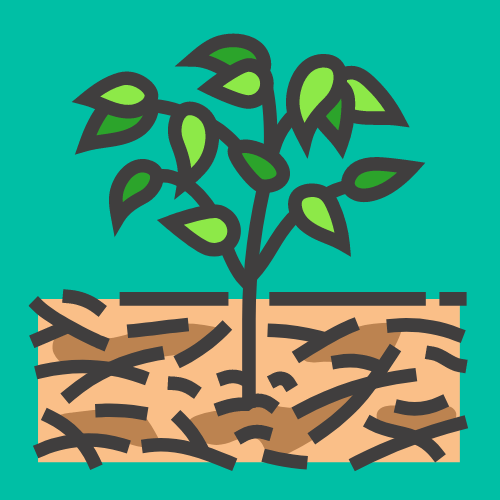
Efficient Watering Methods for Minimal Water Crops
Efficient watering is key to successfully growing vegetables with minimal water. Drip irrigation is one of the best watering methods for drought-tolerant crops, as it delivers water directly to the root zone, minimizing evaporation and ensuring that the plants get the moisture they need.
Soaker hoses are another great option for providing deep, consistent watering with minimal waste. Watering early in the morning or late in the evening can also help reduce water loss due to evaporation.
Using a timer for your irrigation system can help maintain a consistent watering schedule, further reducing water waste and optimizing the growth of your low-water vegetables.
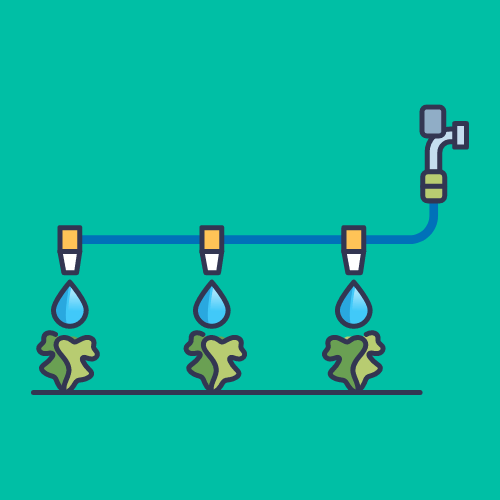
Find the Vegetables that are Best for you
Growing vegetables with minimal watering needs is a smart choice for gardeners in areas with water restrictions, dry climates, or anyone looking to conserve water.
Vegetables like kale, arugula, peas, tomatoes, peppers, melons, courgettes, eggplant, and corn are all excellent options for creating a drought-tolerant garden that produces healthy, flavorful crops. By incorporating these vegetables into your garden, you can enjoy fresh produce while using less water, making your gardening efforts both sustainable and rewarding.
Get our Gardening Buddy and find veggies that fit your conditions best.
You Can Grow It!
Partners and Sponsors
We are forever grateful to our partners and sponsors. Send an email to team @ strongecho.com and let’s see how we can grow each other’s impact!







